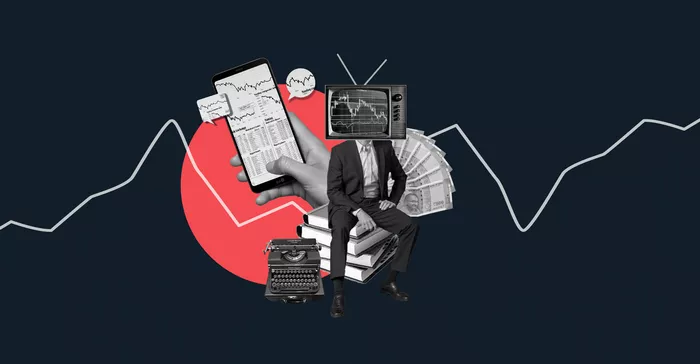Share buybacks, also known as stock repurchases, are a strategic financial maneuver undertaken by companies to repurchase their own outstanding shares from the market. This practice has garnered significant attention in the corporate world, often sparking debates among investors, analysts, and policymakers. Understanding why companies engage in share buybacks is crucial for investors and stakeholders alike, as it sheds light on the underlying motives and potential implications of this financial strategy.
Enhancing Shareholder Value
At the heart of share buybacks lies the fundamental objective of enhancing shareholder value. By repurchasing shares, companies reduce the total number of outstanding shares in the market, effectively concentrating ownership and distributing earnings among fewer shareholders. This can lead to an increase in earnings per share (EPS), a key metric that investors closely monitor to gauge a company’s profitability and growth potential.
Signal of Confidence
Share buybacks often serve as a tangible signal of a company’s confidence in its financial health and future prospects. When a company allocates its resources to repurchasing its own shares, it sends a strong message to the market that management believes the stock is undervalued and that investing in the company’s own equity represents a prudent use of capital. This vote of confidence can bolster investor sentiment and contribute to a positive perception of the company’s outlook.
Tax-Efficient Capital Allocation
From a tax perspective, share buybacks offer an attractive alternative to other forms of capital allocation, such as dividends. While dividends are typically subject to taxation at the individual level, share buybacks do not incur immediate tax liabilities for shareholders. Instead, shareholders may realize capital gains upon selling their shares in the future, allowing them to defer taxes until a later date. This tax-efficient nature of share buybacks can make them an appealing option for companies seeking to return excess capital to shareholders.
Flexible Capital Management
Share buybacks provide companies with a flexible mechanism for managing their capital structure and optimizing their balance sheets. Unlike dividends, which establish a recurring obligation to distribute cash to shareholders, share buybacks offer greater flexibility in adjusting capital return strategies in response to changing market conditions, business priorities, or regulatory considerations. This flexibility enables companies to adapt their capital allocation decisions to maximize shareholder value over the long term.
Mitigating Dilution
In situations where companies issue new shares to finance acquisitions, employee stock options, or other strategic initiatives, share buybacks can serve as a counterbalance to dilution of existing shareholders’ ownership stakes. By repurchasing shares equal to or greater than the newly issued shares, companies can offset the dilutive impact on EPS and preserve the proportional ownership interests of existing shareholders. This proactive approach to managing dilution helps maintain the integrity of shareholder value and aligns the interests of management with those of investors.
Capital Structure Optimization
Share buybacks play a pivotal role in optimizing a company’s capital structure by adjusting the mix of equity and debt financing. By repurchasing shares with excess cash reserves or borrowing funds at favorable interest rates, companies can effectively reduce their equity base and increase their leverage, thereby enhancing financial efficiency and improving return on equity (ROE). This optimization of capital structure reflects a strategic effort to deploy capital in a manner that maximizes shareholder returns while balancing risk considerations.
Creating Shareholder Wealth
Ultimately, the overarching goal of share buybacks is to create shareholder wealth by deploying capital in a manner that generates sustainable long-term returns. By repurchasing shares at prices perceived to be below intrinsic value, companies can capitalize on market inefficiencies and capitalize on opportunities to enhance shareholder value. This wealth creation process extends beyond short-term stock price fluctuations and encompasses broader considerations of business performance, competitive positioning, and strategic alignment with shareholder interests.
Considerations and Caveats
While share buybacks offer several potential benefits, it is important for investors to approach them with a critical eye and consider the broader implications for long-term value creation. Share buybacks should not be viewed in isolation but rather as part of a comprehensive capital allocation strategy that aligns with the company’s overall objectives and shareholder interests. Moreover, excessive reliance on share buybacks as a means of boosting short-term earnings per share can raise concerns about capital allocation discipline and the sustainability of growth initiatives.
Furthermore, investors should be mindful of the potential signaling effect of share buybacks and evaluate whether management’s actions align with underlying business fundamentals. In some cases, companies may resort to share buybacks as a short-term measure to prop up stock prices or compensate for lackluster performance, rather than as a reflection of genuine confidence in the company’s future prospects. It is essential to conduct thorough due diligence and assess the rationale behind share buybacks in the context of broader market trends, industry dynamics, and competitive landscape.
Additionally, regulatory considerations and market dynamics may influence the timing and execution of share buybacks, warranting careful monitoring and oversight by company management and shareholders alike. Legal and regulatory frameworks governing share repurchases vary across jurisdictions and may impose restrictions or disclosure requirements on companies engaging in buyback activities. Furthermore, market conditions, such as fluctuations in stock prices, interest rates, and investor sentiment, can impact the effectiveness and timing of share buybacks, necessitating a proactive and adaptive approach to capital allocation decisions.
Conclusion
Share buybacks represent a strategic tool for companies to enhance shareholder value, signal confidence in their future prospects, and optimize their capital structure. By deploying capital in a manner that generates sustainable long-term returns, companies can create shareholder wealth and foster a favorable investment environment. However, investors should exercise caution and diligence when evaluating the rationale behind share buybacks and consider the broader implications for long-term value creation. Ultimately, the success of share buybacks hinges on prudent capital allocation decisions and a steadfast commitment to maximizing shareholder returns over the long term.


